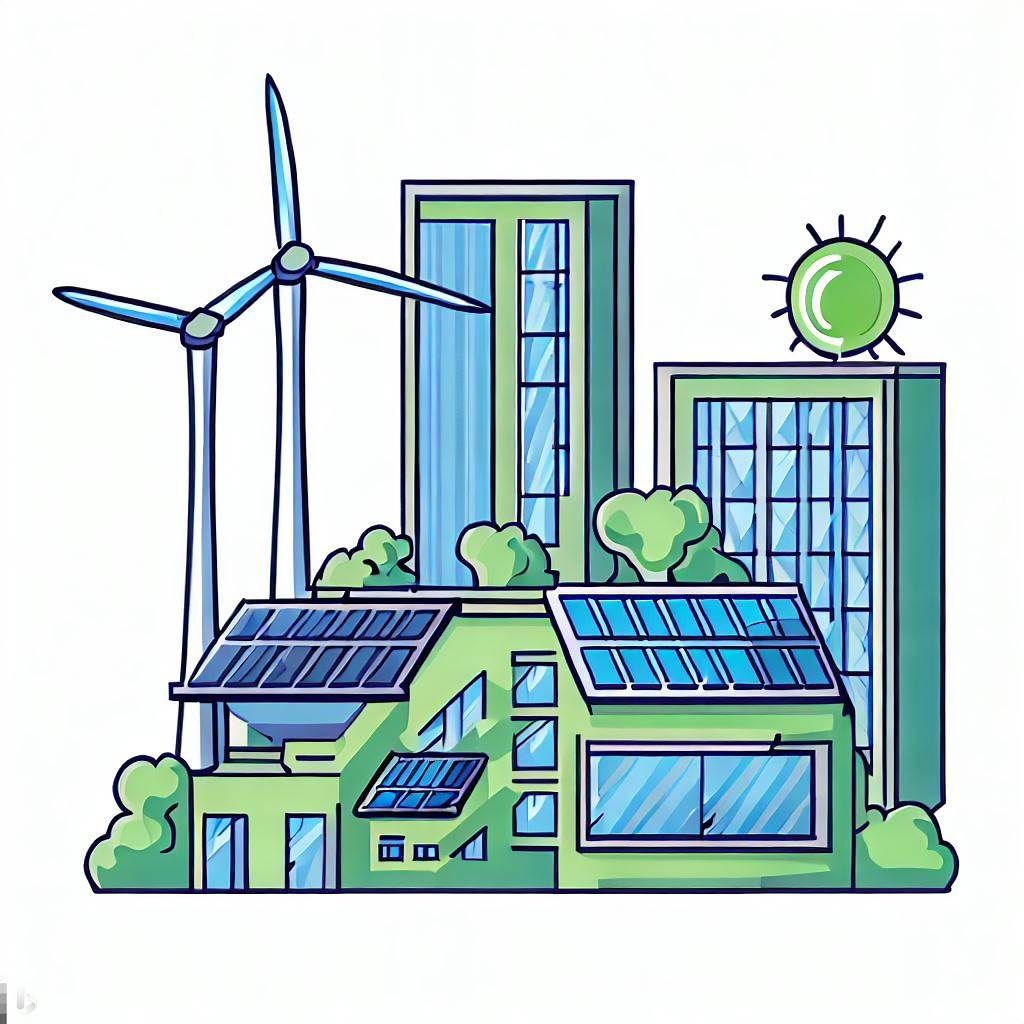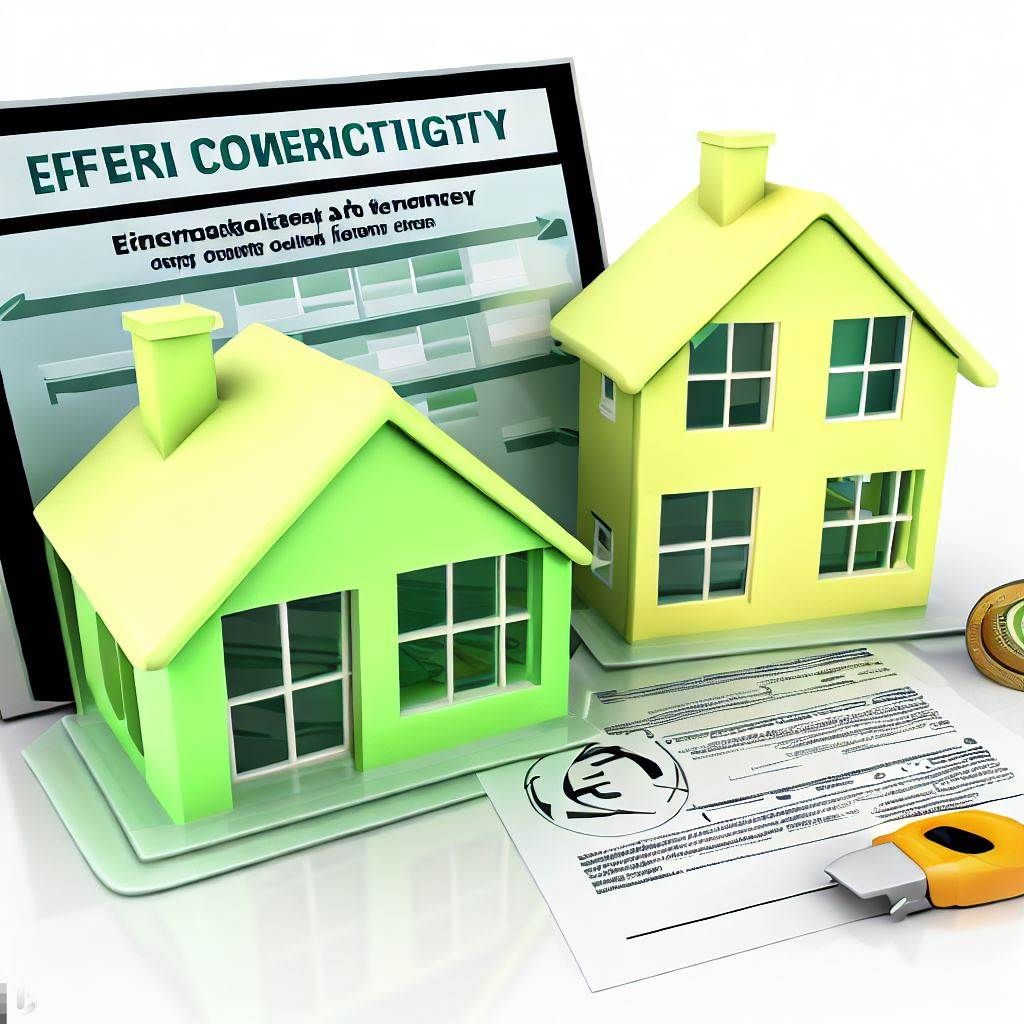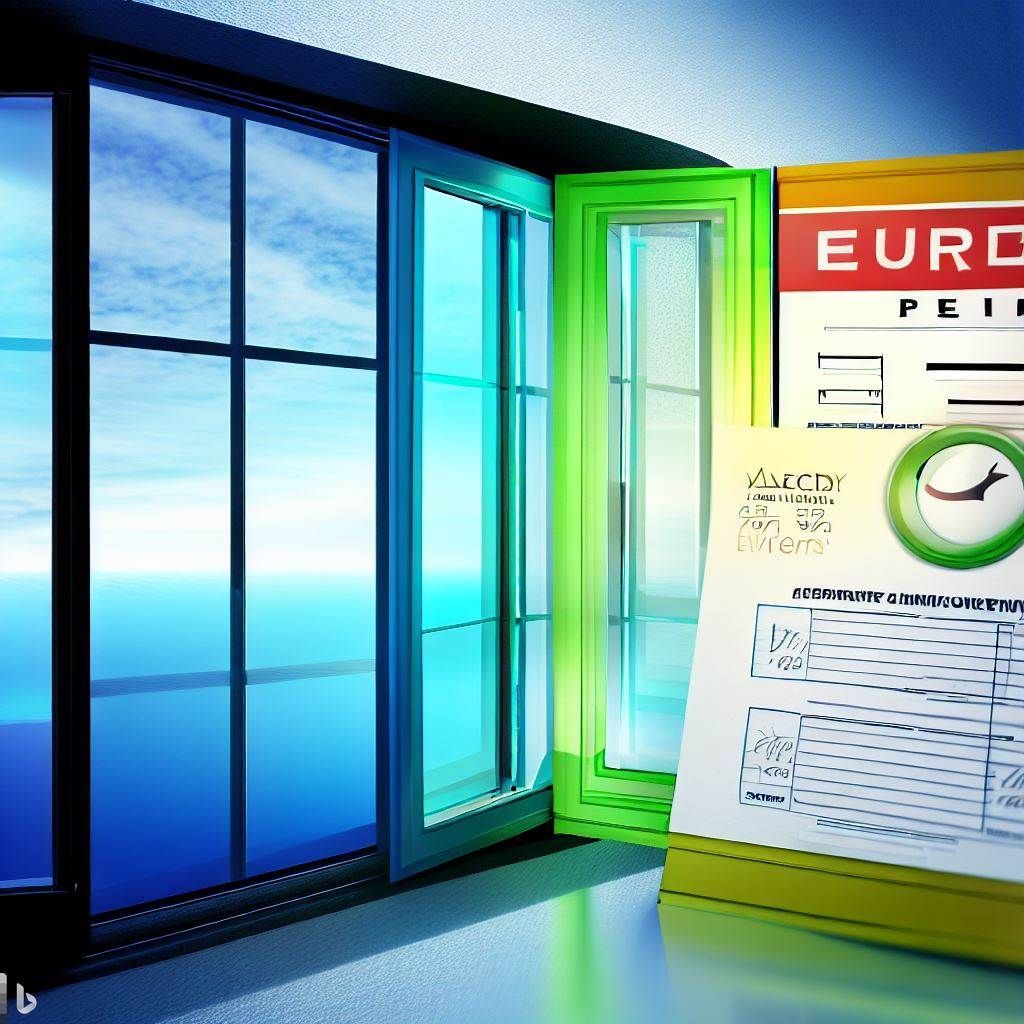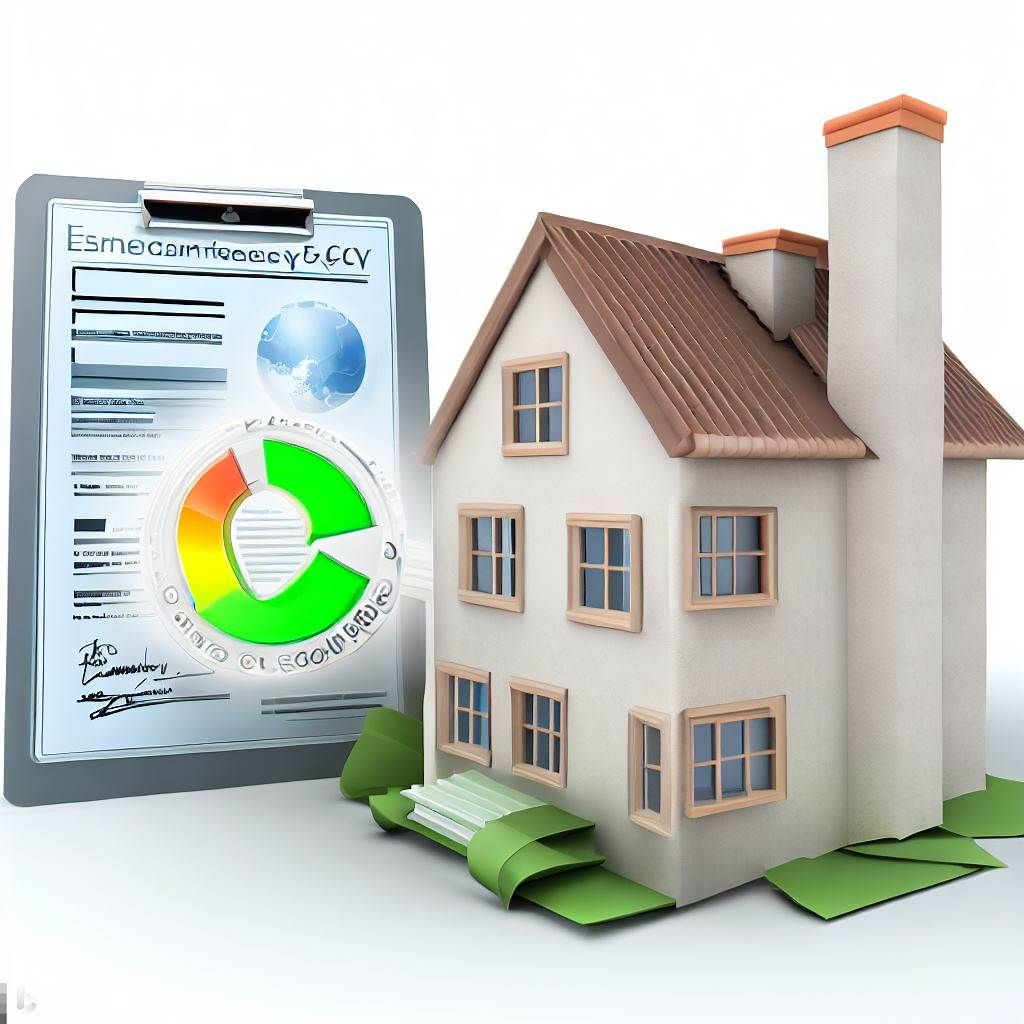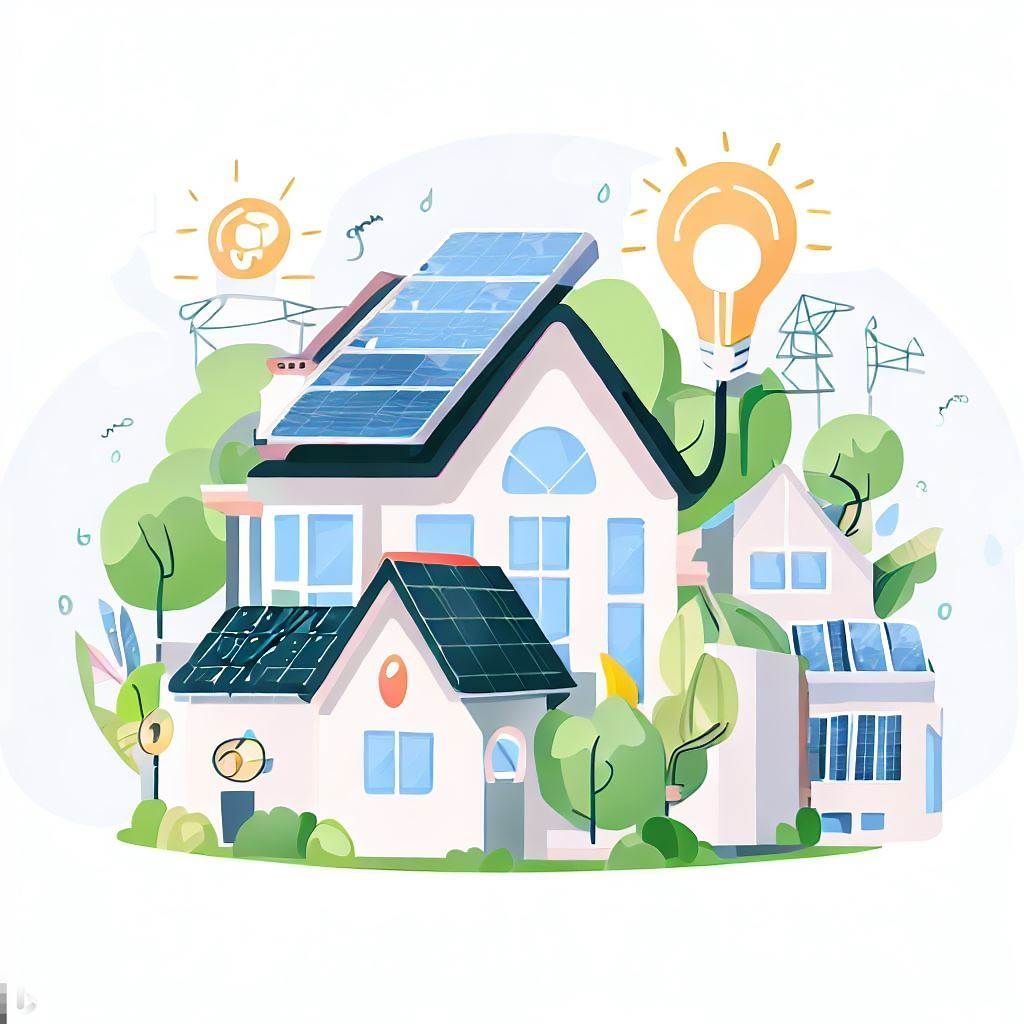What Is An Energy Performance Certificate?
This article will teach you all you need to know about an EPC!
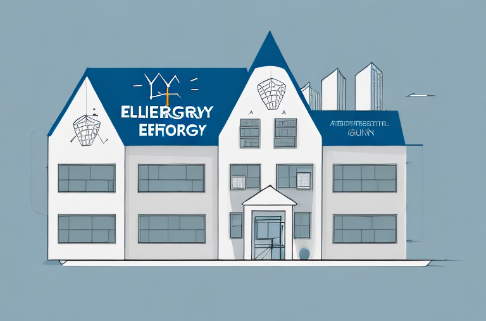
What Is an Energy Performance Certificate?
If you own or rent a property, chances are you've heard of an Energy Performance Certificate (EPC). But what exactly is an EPC, and why is it so important? In this article, we'll explore the ins and outs of EPCs, including their purpose, how they're created, and the benefits they provide. We'll also cover how to obtain an EPC, and what to expect when interpreting the results.
Understanding Energy Performance Certificates
Energy Performance Certificates (EPCs) are an important tool for property owners and tenants to better understand the energy efficiency of their property. They provide a rating from A to G, with A being the most energy-efficient and G being the least. This rating helps property owners and tenants make more informed decisions about their energy use and costs.
The Purpose of an Energy Performance Certificate
The primary purpose of an EPC is to help property owners and tenants make more informed decisions about their energy use and costs. By having a better understanding of a property's energy efficiency, you can take steps to improve it and save money on your energy bills. Additionally, EPCs are an important tool for reducing carbon emissions and combating climate change.
For property owners, an EPC can also help increase the value of their property. A higher energy efficiency rating can make a property more attractive to potential buyers or tenants, as it indicates lower energy bills and a smaller carbon footprint. In some cases, a high energy efficiency rating can also make a property eligible for certain government incentives or grants.
How Energy Performance Certificates are Created
Energy Performance Certificates are created by qualified energy assessors, who are trained to assess the energy efficiency of different types of properties. During the assessment, the assessor will examine various aspects of the property, such as its insulation, heating system, and lighting. They'll also look at any renewable energy sources, such as solar panels or wind turbines, that are installed on the property.
The assessment typically takes around an hour to complete, and the assessor will need access to all areas of the property, including the loft and any outbuildings. The assessor may also ask to see copies of your energy bills for the past three years, as this information is used to calculate the property's energy efficiency rating.
Once the assessment is complete, the assessor will use specialized software to calculate the property's energy efficiency rating and produce the EPC. The rating takes into account factors such as the property's age, size, construction, and location, as well as its energy consumption over the past three years.
Key Components of an Energy Performance Certificate
When you receive your EPC, it will include several key components that you should be aware of. These include:
- The energy efficiency rating, as well as the environmental impact rating. The energy efficiency rating ranges from A to G, with A being the most energy-efficient and G being the least. The environmental impact rating ranges from 0 to 100, with 0 being the lowest impact and 100 being the highest.
- Estimated energy use and costs. The EPC will provide an estimate of how much energy the property is likely to use in a year, as well as an estimate of the annual energy costs.
- Recommendations for improving the property's energy efficiency. The EPC will provide a list of recommended improvements that could increase the property's energy efficiency rating.
- A reference number, which you'll need if you want to sell or rent the property. The reference number is unique to your property and is required for any future EPCs.
- The date the EPC was issued, and how long it's valid for. EPCs are valid for 10 years, after which time a new assessment will need to be carried out.
It's important to note that an EPC is not a legal requirement for all types of properties. However, it is required for all residential properties that are being sold or rented in the UK. Additionally, some commercial properties may also require an EPC, depending on their size and intended use.
The Importance of Energy Performance Certificates
Energy Performance Certificates (EPCs) are an essential tool for homeowners, tenants, and landlords alike. They provide valuable information about a property's energy efficiency and help to reduce its environmental impact. In this article, we'll explore some of the key benefits of EPCs and why they're so important.
Benefits for Homeowners and Tenants
So why are EPCs so important for homeowners and tenants? For one, they provide valuable information about a property's energy efficiency. The EPC will give you a rating from A (most efficient) to G (least efficient) and provide recommendations on how to improve your property's rating. By following these recommendations, you can save money on your energy bills and reduce your carbon footprint.
For example, the EPC may recommend installing loft insulation or upgrading your boiler to a more energy-efficient model. These changes can make a significant difference to your energy bills and help to reduce your impact on the environment.
Another benefit of EPCs is that they help to raise awareness about energy efficiency. By providing information about a property's energy performance, EPCs encourage people to make greener choices. This can include simple changes like turning off lights when you leave a room or more significant upgrades like installing solar panels.
Environmental Impact
Improving the energy efficiency of our buildings is crucial for reducing their environmental impact. The energy we use to heat and power our homes is responsible for a significant portion of greenhouse gas emissions, which contribute to climate change. By improving the energy efficiency of our buildings, we can mitigate these emissions and move closer to a more sustainable future.
EPCs play a vital role in this effort by providing information about a property's energy performance and making recommendations for improvement. By following these recommendations, homeowners and tenants can reduce their impact on the environment and help to create a more sustainable future.
Legal Requirements and Compliance
In addition to the benefits for homeowners and tenants, EPCs are also a legal requirement in many cases. If you're selling or renting a property, you'll need an EPC to comply with UK law. Failure to obtain an EPC can result in fines and legal action, so it's essential to make sure you have one in place.
Even if you're not selling or renting your property, it's still a good idea to have an EPC. It provides valuable information about your property's energy performance and can help you to identify areas for improvement. By making these improvements, you can save money on your energy bills and reduce your impact on the environment.
Conclusion
Overall, Energy Performance Certificates are an essential tool for homeowners, tenants, and landlords. They provide valuable information about a property's energy efficiency, help to reduce its environmental impact, and are a legal requirement in many cases. By following the recommendations included in your EPC, you can save money on your energy bills, reduce your carbon footprint, and help to create a more sustainable future.
How to Obtain an Energy Performance Certificate
Finding a Qualified Energy Assessor
If you need an EPC for your property, the first step is to find a qualified energy assessor. You can search for assessors in your area using the government's public register. Make sure to choose an assessor who is accredited and experienced, as this will ensure that you get an accurate and reliable assessment.
The Assessment Process
Once you've found an assessor, they'll arrange a time to visit the property and carry out the assessment. The assessment usually takes around 1-2 hours, and you'll need to provide access to all areas of the property. The assessor will take measurements and make notes about various aspects of the property, such as the heating system and insulation. They may also ask questions about your energy use and habits, as well as any renewable energy sources you have installed.
Costs and Timeframes
The cost of an EPC assessment can vary depending on the size and complexity of the property, as well as the assessor's fees. On average, you can expect to pay around £60-£120 for an assessment. The assessment should be completed within 7 days of the assessor's visit, and you'll receive the EPC shortly afterwards.
Interpreting Your Energy Performance Certificate
Energy Efficiency Ratings
When you receive your EPC, the first thing to look for is the energy efficiency rating. As mentioned earlier, this ranges from A to G. The higher the rating, the more energy-efficient the property is. You'll also see an environmental impact rating, which measures the property's carbon emissions. A higher rating means a lower environmental impact.
Recommendations for Improvement
In addition to the ratings, your EPC will also include recommendations for improving the property's energy efficiency. These may be simple changes, such as installing draft excluders or switching to energy-efficient light bulbs. Or they may involve more significant upgrades, such as adding insulation or replacing the heating system. The recommendations will be tailored to your specific property, and are designed to help you save money on your energy bills and reduce your carbon footprint.
Estimated Energy Costs
Finally, your EPC will include estimated energy costs, which can help you budget for your energy bills. The costs are based on the property's energy consumption over the past three years, and take into account factors such as fuel prices and inflation. While the costs are only estimates, they can give you a good idea of what to expect when it comes to your energy bills.
Conclusion
Overall, an Energy Performance Certificate is a valuable tool for property owners and tenants alike. By providing information about a property's energy efficiency and recommendations for improvement, EPCs can help to save money on energy bills and reduce carbon emissions. If you're selling or renting a property, obtaining an EPC is essential for legal compliance. So if you haven't already, consider getting an EPC for your property to reap the benefits of greater energy efficiency.



